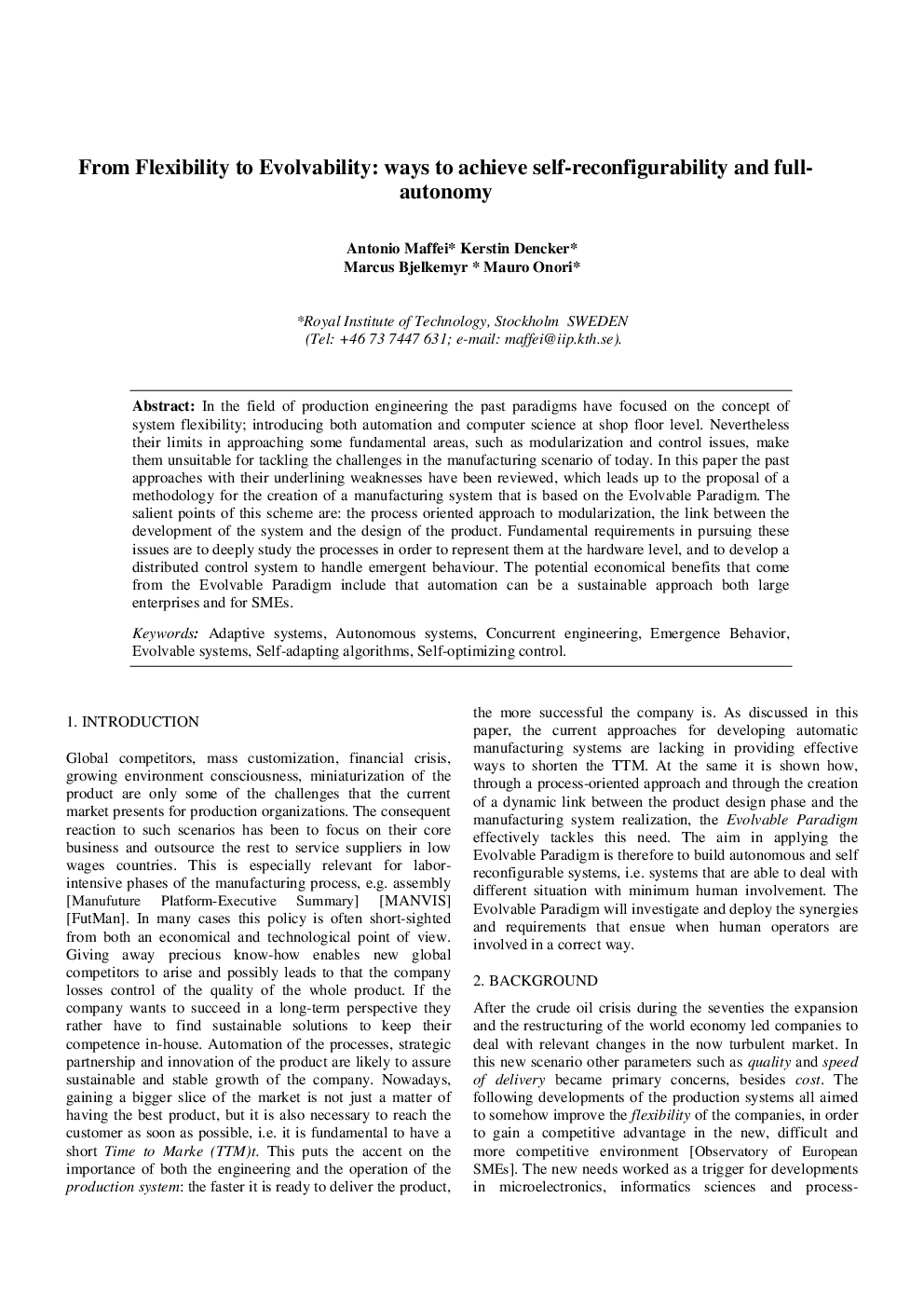| کد مقاله | کد نشریه | سال انتشار | مقاله انگلیسی | نسخه تمام متن |
|---|---|---|---|---|
| 721334 | 892312 | 2009 | 6 صفحه PDF | دانلود رایگان |

In the field of production engineering the past paradigms have focused on the concept of system flexibility; introducing both automation and computer science at shop floor level. Nevertheless their limits in approaching some fundamental areas, such as modularization and control issues, make them unsuitable for tackling the challenges in the manufacturing scenario of today. In this paper the past approaches with their underlining weaknesses have been reviewed, which leads up to the proposal of a methodology for the creation of a manufacturing system that is based on the Evolvable Paradigm. The salient points of this scheme are: the process oriented approach to modularization, the link between the development of the system and the design of the product. Fundamental requirements in pursuing these issues are to deeply study the processes in order to represent them at the hardware level, and to develop a distributed control system to handle emergent behaviour. The potential economical benefits that come from the Evolvable Paradigm include that automation can be a sustainable approach both large enterprises and for SMEs.
Journal: IFAC Proceedings Volumes - Volume 42, Issue 16, 2009, Pages 74-79